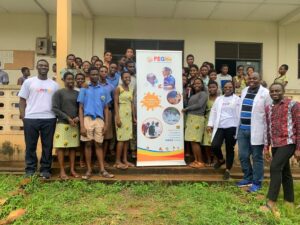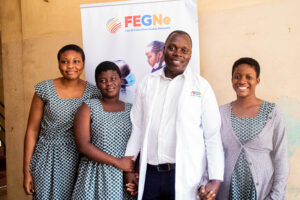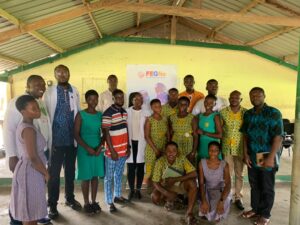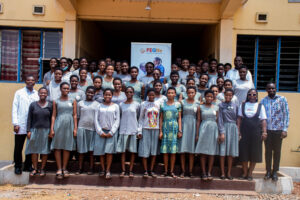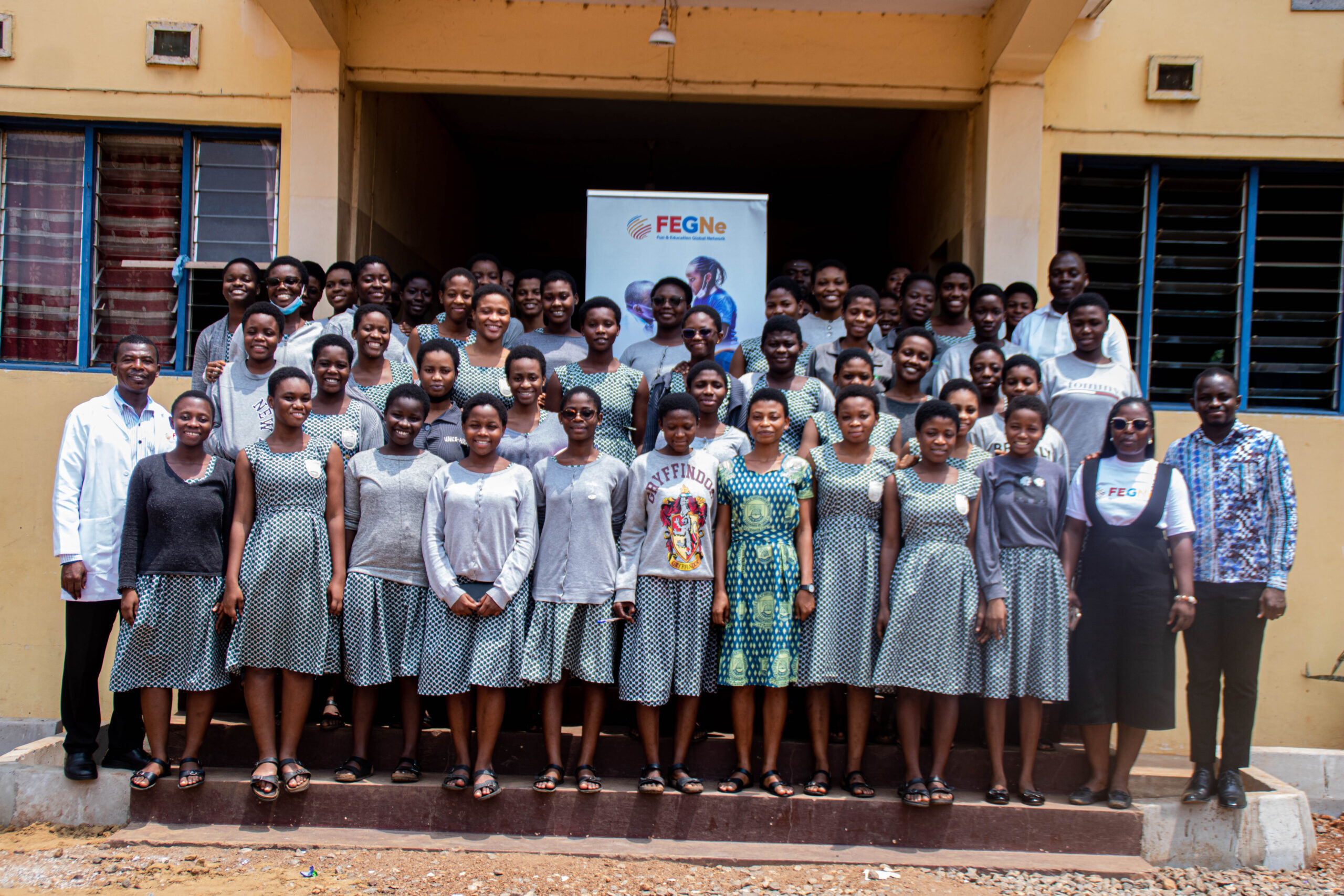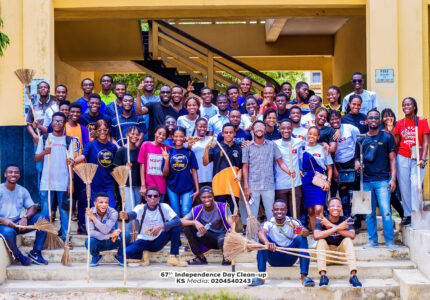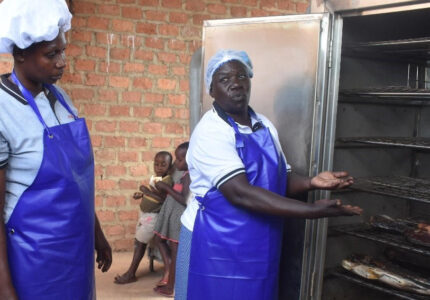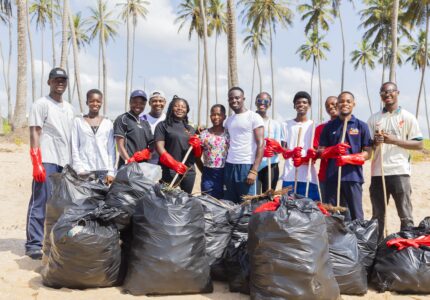In August 2023, the Alliance for Science- Ghana hosted the Founder and President of the Fun and Education Global Network (FEGNe), Kenneth Monjero, popularly known as Dr Fun. Monjero was in Ghana to engage with some schools and their students and build partnerships with some institutions that share the objectives of FEGNe.
FEGNe, founded in April 2020 upon the outbreak of COVID-19, initially aimed at providing informal education to children using online platforms. It linked children across different countries to professionals in various fields to share their experiences, network and be mentored in career development.
The organization, now based in Kenya uses informal education approaches through ‘minds-on’ and ‘hands-on’ fun activities to promote STEM to inspire students, young scientists and innovators across basic and applied education while offering mentorship and career development. According to Monjero, FEGNe functions on three pillars: Attract, Engage and Empower. He explains, “We leverage how we can attract people through the science shows, and once we attract them, we engage them to know what is going on in terms of applied education and then empower them to come up with innovative approaches to make education attractive and more engaging”.
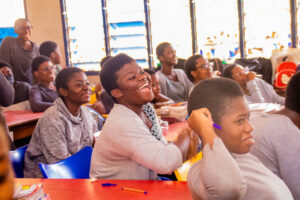
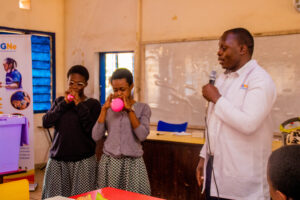
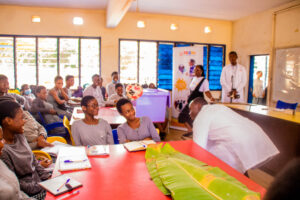
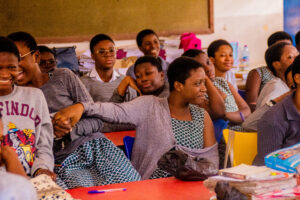
STEM stands for Science, Technology Engineering, and Mathematics, and is arguably the most critical field that would drive the socio-economic development of Africa quickly, according to the African Institute for Mathematical Sciences. Research points out that STEM enhances students’ problem-solving, critical thinking, and analytical skills while fostering more robust connections between classroom learning and the real world.
While in Ghana, the team held science shows at the Ghanata Senior High School in Dodowa, Accra Girls Senior High School in Accra and the Aveyime Battor Senior High Technical School in Aveyime to excite students’ interest in STEM careers. The schools expressed excitement and gratitude for the events and called for more.
Hagar Danquah, an Accra Girls Senior High student in an interview, expressed her delight in the various applications of science displayed by Monjero and the team. “It’s amazing how Dr Fun always throws a challenge at us, asking if we believe in something he is about to do. They didn’t seem possible, but he was able to do everything in the end. I think now, that science can do everything. After senior high school, I will do a science course, and I am thrilled and proud about that,” she said.
Raphael Sappor, a first-year general science student at Aveyime Battor SHTS, stated that he was motivated to take his science courses seriously after the event, even though their science lab was inadequate.
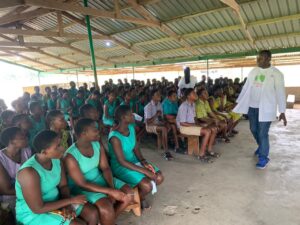
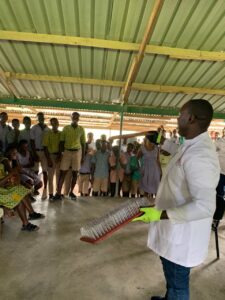
Erica Akyiale, a second-year agricultural science student, had planned to pursue a career in fashion design after completing her studies. This decision was due to her lack of knowledge about the various opportunities available in the agricultural field. However, after a program session that highlighted the different career prospects in the agricultural sector, Akyiale said she has now decided to focus on plant sciences as her career path.
The headteachers of Ghanata SHS and Aveyime Battor SHTS, Mrs. Constance Amofa and Michael Totime expressed their concerns about the inadequate state of their school science laboratories. They believe this limitation hinders effective science study in their schools. They hope to receive assistance from the government and other private-sector organizations to improve the laboratories and enhance the teaching and learning of STEM.
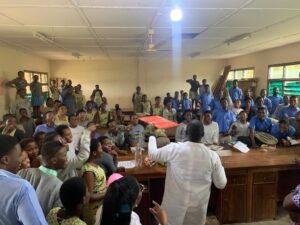

A study found that practical work in science education has three main advantages. Firstly, it develops practical skills and conceptual understanding, increasing motivation for scientific careers. Secondly, it improves scientific literacy and helps to eliminate misconceptions. Thirdly, it fosters research skills, bringing students closer to a deeper understanding of scientists’ work. It suggests adequate teacher training is essential for effective implementation.
African countries are working to improve access to STEM education through initiatives like the Continental Education Strategy for Africa 2016-2025 (CESA 16-25) and the Science, Technology, and Innovation Strategies for Africa (STISA-2024). These efforts aim to strengthen the foundation for future development and innovation on the continent.
The team also visited the School of Engineering Science at the University of Ghana and the West Africa Centre for Crop Improvement (WACCI) to explore partnership opportunities.
At the School of Engineering Sciences, the team met the Dean, Prof. Elsie Effah Kaufmann and the outreach team. During their conversation with Prof Kaufmann, they talked about the works of FEGNe and how collaboration between the two entities could result in significant impacts in the future.
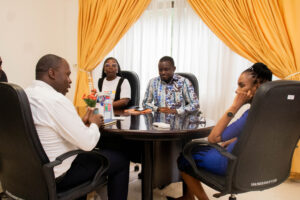
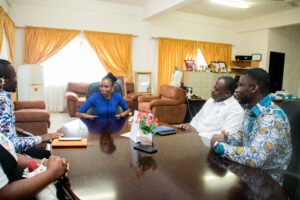
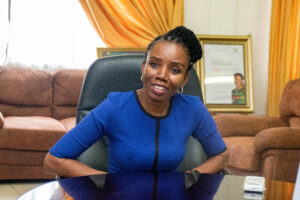
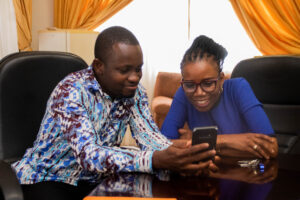
The meeting with the outreach team further explored strategies for rolling out outreach programs together in Ghana. Dr Margaret Richardson Ansah and Dr Jessica Joweriah Ibrahim, both of the outreach team, admired FEGNe’s work. They believe that hands-on experiences are crucial in helping children and students understand and appreciate engineering and science. This approach also dispels the misconception that these subjects are complex.
At WACCI, Professor Eric Yirenkyi Danquah, the founding director, suggested that FEGNe focus on developing strategies to impact policy. He emphasized the importance of involving the private sector in such mandates and how little progress can be made without creating the right environment for them. To help improve school systems, mainly primary and high schools, he proposed a collaboration between universities and the private sector to develop learning modules based on stories and scenarios related to topics such as climate change, population growth in Africa, and technology. He also emphasized the importance of promoting interest in agriculture.
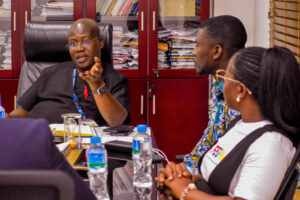
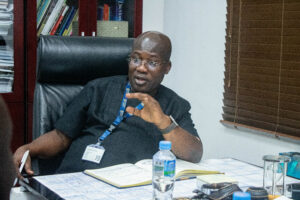
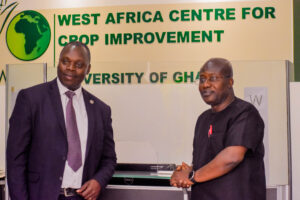
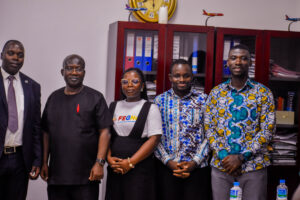
“Apart from education, there is nothing else. We must help young students understand that agriculture is not about farming but innovation. Innovations can make farmers and everyone else happy, and these can come from creative thinkers and game changers. Therefore, it’s crucial to have some of the brightest minds on earth involved in plant sciences,” he said.
FEGNe is working to officially establish its Ghana chapter to positively impact young learners throughout the country.
